A referendum was held on 23 June 2016, to decide whether the UK should leave or remain in the European Union, the so called Brexit (“British” and “exit”). England and Wales voted for leave. Scotland, Northern Ireland, Greater London and Gibraltar backed staying in the EU. Liverpool, Manchester, Bristol, Cardiff and the regions around the university cities such as Cambridge, Oxford and Warwick backed staying in the EU.
The referendum is non-binding
Article 50 of the Treaty on European Union establishes the procedures for a member state to withdraw from the EU. It requires the member state to notify the EU of its withdrawal and obliges the EU to then try to negotiate a withdrawal agreement with that state. Britain’s “Leave” vote does not represent that formal notification. The prime minister is planning to trigger article 50 by end of March 2017. That will then set in motion the formal legal process of withdrawing from the EU, and give the UK two years to negotiate its withdrawal.
The High Court in London ruled on 3 November 2016, that only parliament – not the prime minister – can authorise the signing of article 50. The government appealed against the judgment. The Supreme Court heard the case from 5 to 8 December 2016 and will deliver its judgment by the end of January 2017. The government’s Brexit plan will not be published before February 2017 (see press report).
Brexit would require legislation put before both the House of Commons and the House of Lords. 479 of 650 MPs in the House of Commons – all SNP and Lib Dems, nearly all Labour and many Conservatives – were in favour of staying. But if the Commons endorse the activation of article 50, the Lords could block it. This heightens the likelihood of an early general election in 2017 (see legal analysis).
 Labour will block article 50 if demands not met
Labour will block article 50 if demands not met
Labour leader Jeremy Corbyn said on 5 November 2016, his party will force early election in spring 2017 unless the government, which has a slim Commons majority, agrees to Labour’s “Brexit bottom line”. It includes continued access to the single market, and a guarantee on workplace rights (see press report).
 Court battle could cause a “constitutional crisis”
Court battle could cause a “constitutional crisis”
A Supreme Court Judge said on 15 November 2016, that comprehensive legislation to begin the process of exiting the EU could delay Brexit by up to two years. That is the reason why a former Cabinet Minister advised the government to simply ignore the Supreme Court decision (see press report).
 European Court of Justice to be asked
European Court of Justice to be asked
On 9 December 2016, it has been announced that the Irish High Court will be asked to intervene in the UK’s legally complex Brexit process, aimed at reaching the European court of justice in Luxembourg. The case in Dublin will be brought against the Irish state, the EU council and the European commission (see press report and the draft wording of the claim).
EU law still stands in the UK until it ceases being a member, earliest possible date: end of March 2019. After that date, British government is free to repeal (or not) the law transposing the EWC Directive. There are no legal changes regarding the status quo for European works councils, SE works councils and special negotiating bodies until that date.
“As long as we remain in the EU we will retain the rights and obligations of EU membership.” (Theresa May, new prime minister, 27 July 2016)
What are the scenarios after EU withdrawal?
Should the UK leave the EU, there are several paths onwards for the period thereafter. The Norwegian-option and the Swiss-option.
The Norwegian-option
In Norway there was no majority for accession to the EU in the 1972 and 1994 referendums. Norway as well as Iceland and Liechtenstein are however, fully integrated into the common market as a consequence of the European Economic Area agreement. In practice, this means that Norway transposes almost all EU laws into its national legislation, but has hardly any influence on the legislation. The EWC Directive therefore also applies to Norway without restriction.
- If the UK joins the European Economic Area, British EWC law has to remain in place.
The Swiss-option
In Switzerland, the accession to the European Economic Area was rejected by referendum in 1992. However, in order to benefit from the advantages of the common market, comprehensive bilateral agreements between Switzerland and the EU were concluded in 1999 and 2004. By these means, important parts of the EU legislation have been adopted in the Swiss national legislation. In order to prevent Switzerland from “cherry picking”, these agreements are inter-connected to one another through a “guillotine clause”; if a tiny part of an agreement is terminated, all agreements are automatically terminated. In December 2008 Switzerland adhered to the Schengen Agreement and abolished border controls with the EU (see report in EWC News 3/2008). The EWC Directive however does not apply, since there was no majority on it in Parliament, in June 2012 (see report in EWC News 2/2012).
- If the UK concludes bilateral agreements like Switzerland, British EWC law can be removed.
Do British EWC members lose their mandates after EU withdrawal?
Prior to 15 December 1999 there was no EWC legislation in the United Kingdom. Nevertheless, at that time many large British companies had established a EWC. The EWC agreement was then, for example under Belgian, German or French jurisdiction. Usually the United Kingdom workforce was also integrated into the European works council. In companies with headquarters in Switzerland the Swiss workforce is represented on the EWC in over 70% of the cases. This suggests that in practice, a massive loss of British mandates will probably not happen. The situation is different in EWC agreements under British jurisdiction. It remains entirely uncertain, as to whether or not they will continue to apply or have to be completely renegotiated.
At the conservative party convention held in Birmingham, government members declared on 2 October 2016, that the currently applicable labour legislation would not be touched. If this promise is kept, then current British EWC legislation (TICER 2010) would also remain unchanged.
Many voices for the Norwegian-option
because the EU buys 44% of the UK’s exports and provides 54% of its imports.
- Former foreign secretary and new Chancellor Philip Hammond says it is crucial UK retains full access to the single market.
- Britain simply must remain within the single market (Sadiq Khan, new Mayor of London, Labour Party)
- Government of Wales: it is important to retain access to the European single market
- Boris Johnson, “Leave” campaigner and new foreign secretary, wants to “intensify” cooperation with the EU and maintain access to the single market.
- The TUC is clearly in favour of the Norwegian-option: http://touchstoneblog.org.uk/2016/06/working-people-must-not-pay-price-leaving-eu
- But German Chancellor Angela Merkel says, access to the single market will have its price. It is not possible to demand use of “club facilities” without paying membership dues.
- EU leaders are refusing a “Europe a la carte” by letting Britain select parts that it may like, such as access to the single market, while dispensing with EU principles such as free movement of people.
- And Norway may block UK return to European Free Trade Association (see press report).
The economy after the referendum
The pound hits its lowest level since 1985. The price of petrol at fuel stations is to rise quickly, prices for food and consumer goods will follow (see press report). In early July 2016, several commercial property funds have been forced to suspend redemptions. They have to raise cash and need to sell properties. Over half of this sector is now on ice. Both manufacturing and service sectors saw a decline in output and orders after the referendum – a “dramatic deterioration” in economic activity, not seen since the aftermath of the financial crisis (BBC report, 22 July 2016).
Many companies are likely to freeze recruitment or to relocate jobs, some examples:
- Up to 2,000 jobs at the US investment bank Morgan Stanley could be moved from London to Dublin or Frankfurt. (BBC report, 24 June 2016)
- The largest British bank HSBC to move up to 1,000 staff from London to Paris if the UK leaves the single market. (BBC report, 26 June 2016)
- The Swiss pharmaceutical group Roche warns of drug shortages in the United Kingdom and will reconsider its investments there. (Press report, 21 July 2016)
- Lloyds Banking Group is axing 3,000 jobs and closing 200 branches. (Press report, 28 July 2016)
- Ford considers closing factories and raising prices in the UK in wake of Brexit. (Press report, 28 July 2016)
- Japanese businesses with their European headquarters in the UK may decide to transfer their head-office to continental Europe, says Japan’s government. (Press report, 4 September 2016)
- Ryanair will base all of its new planes outside the UK because the airline has “much more political certainty in continental Europe” after the Brexit vote. “There’s a bunch of headless chickens here, they don’t know what they voted for and have no idea where they’re going to finish up”, said the Ryanair boss. (Press report, 7 September 2016)
- Three-quarters of British chief executives say they are considering moving their headquarters or some of their operations outside the UK as a result of Brexit. (Press report, 26 September 2016)
- Nissan, which builds around a third of Britain’s total car output, wants compensation from UK government for any tax barriers resulting from Brexit. (Press report, 29 September 2016)
- “Have a break, have a Brexit!” Swiss food giant Nestlé has warned that it may have to put up prices of Nescafé, KitKat and other products because of the falling pound. (Press report, 21 October 2016)
- Britain’s biggest banks are preparing to relocate out of the UK in the first few months of 2017. (Press report, 22 October 2016)
- Ratings agency Moody’s announced on 2 November 2016 to downgrade the UK’s sovereign rating if the UK lost access to the Single Market (see announcement).
- The construction sector suffered its worst quarter for four years following the vote to leave the EU. (Press report, 11 November 2016)
- Brexit vote’s blow to the economy would force the government to borrow £122bn more than hoped, admits Chancellor Philip Hammond. (Press report, 23 November 2016)
- Workers in Britain face the biggest squeeze on their pay for 70 years as Brexit knocks wage growth and stokes inflation, according to the Institute for Fiscal Studies. (Press report, 24 November 2016)
- 200,000 UK jobs are at stake across the financial services sector and big banks will start making decisions in 2017. (Press report, 13 December 2016)
Brexit could lead to the “disintegration” of the whole United Kingdom
“People thought there was something patriotic or particularly pro-British about leaving the EU only to discover that it led to the disintegration of our country.” (William Hague, former Foreign Secretary)
1. Scottish independence
Scotland voted to remain in the European Union. The Scottish Government started discussions with the EU institutions and other member states about Scotland remaining in the EU. Since early August 2016 there is a call for a referendum whether the country should continue as a monarchy or republic. On 20 October 2016 the Scottish Government published a draft bill on a second independence referendum (see BBC report). On 8 November 2016 the Scottish government confirmed to join the Supreme Court case in London, because the Scottish parliament should have a vote before Article 50 is triggered (see press report).
Former Prime Minister Tony Blair said in January 2016, that he thinks Scotland will leave the United Kingdom if the United Kingdom leaves the European Union (see BBC report). The U.S. bank JP Morgan said on 29 June 2016 it now expects Scotland to vote for independence and introduce its own currency before Britain leaves the European Union in 2019 (see press report).
2. Irish reunification
An independence referendum is under discussion on Irish reunification in order to maintain Northern Ireland’s EU membership. At the very least, Northern Ireland would ask for special arrangements with the EU. On 28 October 2016, the High Court in Belfast rejected two court cases challenging the legality of the British government’s strategy on Brexit to trigger Article 50 without prior authorisation from the regional Parliament of Northern Ireland. The case is now going to the Supreme Court in London (see press report).
3. Status of London
London voted to remain in the EU. A petition calling to declare London independent from the UK has received more than 170,000 signatures so far. Supporters of London’s independence argued that London’s demographic, culture and values are different from the rest of England, and that it should become a city state similar to Singapore, while remaining an EU member state (see press report).
4. Status of Wales
On 2 July 2016 demonstrations for the independence of Wales and to remain in the EU took place for the first time in two cities. On 18 November 2016 the Supreme Court in London confirmed that Wales will be allowed to take part in the appeal case on parliamentary sovereignty to trigger Article 50.
5. Status of Gibraltar
Gibraltar voted with 96% majority to remain in the EU. Spain is calling for joint sovereignty in order to maintain Gibraltar’s EU membership (see press report). Gibraltar’s Chief Minister seeks a special Brexit deal to preserve freedom of movement (see press report).
6. Falkland-Islands
A Brexit could have “catastrophic” implications for the future and the sovereignty of the Falkland Islands. Argentina is calling to start new negotiations.
A new Constitution?
Since July 2015 the all-party Constitution Reform Group is already working on a new constitutional settlement for the United Kingdom: http://www.constitutionreformgroup.co.uk
Petition for a new referendum
A petition, calling for a second referendum to be held in the event that a result was secured with less than 60% of the vote and on a turnout of less than 75%, had attracted more than 4 million signatures: https://petition.parliament.uk/petitions/131215
“Parliament is sovereign and the guardian of our democracy”
More than 1,000 barristers have signed a letter to the prime minister urging him to allow parliament to decide whether the UK should leave the European Union. The parliamentary vote should take place with a greater understanding as to the economic consequences of Brexit. The government should establish a royal commission to receive evidence and report on benefits, costs and risks of triggering article 50. The parliamentary vote should not take place until the commission has reported:
http://www.theguardian.com/politics/2016/jul/11/brexit-parliament-should-make-ultimate-decision-on-whether-to-leave-eu-barristers-say
A UK-wide approach?
The new prime minister Theresa May has assured Scotland’s first minister during her first official visit to Edinburgh on 15 July 2016 that she would not trigger article 50 until “a UK-wide approach” had been agreed for negotiations to leave the EU.
What is the most likely scenario? The Brexit will not happen
A legal commentator at FT.com and one of the UK’s finest bloggers wrote already on 25 June 2016:
In my view, if the Article 50 notification was not sent the very day after the Leave result, there is a strong chance it will never be sent.
“There is a stalemate. If this were a game of chess, a draw would now be offered. Stalemates can last a long time. And unless there is political will to resolve it, this stalemate will not resolve itself.
It is not impossible to imagine that the Article 50 notification will never be made, and that the possibility that it may one day be made will become another routine feature of UK politics – a sort of embedded threat which comes and goes out of focus. The notification will be made one day, politicians and pundits will say, but not yet.
The longer article 50 notification is put off, the greater the chance it will never be made … As long as the notification is not sent, the UK remains part of the EU. And there is currently no reason or evidence to believe that, regardless of the referendum result, the notification will be sent at all.
And so long as the Article 50 notification is not made, the UK continues to be a full member of the EU as it was before the referendum took place; indeed, as if the referendum never took place at all. It means the result of the referendum will be effectively ignored.”
http://jackofkent.com/2016/06/why-the-article-50-notification-is-important
“Surviving your own suicide” (Chris Patten, former EU Commissioner, Conservative Party)
How to tell your own people, that the referendum is to be ignored? Well, perhaps Alexis Tsipras could give some practical advice to the British conservatives, concerning the Greek referendum on 5 July 2015 and afterwards. Tsipras resigned, to become Prime Minister again.
 Latest Poll results — 1 July 2016
Latest Poll results — 1 July 2016
More than a third of voters are not convinced the UK will leave the EU despite the referendum result. Almost half of voters agree there should be a general election before Britain begins Brexit negotiations. More than half of voters do not believe their current government and MPs reflect the views of the British public towards the EU. The Norwegian-option is clearly backed: only 38% said losing access to the single market would be a price worth paying. (see BBC report)
 “Why it’s time to accept the fact that Brexit may never actually happen” — 21 July 2016
“Why it’s time to accept the fact that Brexit may never actually happen” — 21 July 2016
Morgan Stanley, the American multinational financial services corporation, published a note to investors on Brexit: “The more time goes by, the more plausible it becomes that the UK may never actually leave the European Union.” (see press report)
 “It is possible that Brexit may never happen” — 1 September 2016
“It is possible that Brexit may never happen” — 1 September 2016
Former Labour Prime Minister Tony Blair said: “We have done something rather bizarre with Brexit. It’s like moving house without having seen the new house. The vote to leave had been a reaction against austerity, globalisation and immigration.” (see BBC report).
 “Brexit negotiations more or less like what happened with Greece” — 3 October 2016
“Brexit negotiations more or less like what happened with Greece” — 3 October 2016
According to Malta’s Prime Minister, who will chair the EU’s rotating presidency in early 2017, Britain must be ready to accept an “inferior deal” (see press report).
 Two-thirds of voters oppose a ‘blind-date Brexit’— 13 November 2016
Two-thirds of voters oppose a ‘blind-date Brexit’— 13 November 2016
A new poll finds that only 33% of voters support Brexit unconditionally, two-thirds don’t back Brexit at any cost (see press report).
 Two former Prime Ministers in favour of a second referendum — 25 November 2016
Two former Prime Ministers in favour of a second referendum — 25 November 2016
After Tony Blair (Labour Party), the former Prime Minister John Major (Tories) said, a second Brexit referendum would be “perfectly credible” (see press report).
 British public will not accept Brexit that leaves them worse off financially — 10 December 2016
British public will not accept Brexit that leaves them worse off financially — 10 December 2016
New surveys point to a growing worry that Brexit will leave the UK poorer and the prolonged period of uncertainty since the referendum has chipped away at the pro-Brexit majority (see press report).
Source: http://www.ewc-academy.eu/en/consulting/brexit.html



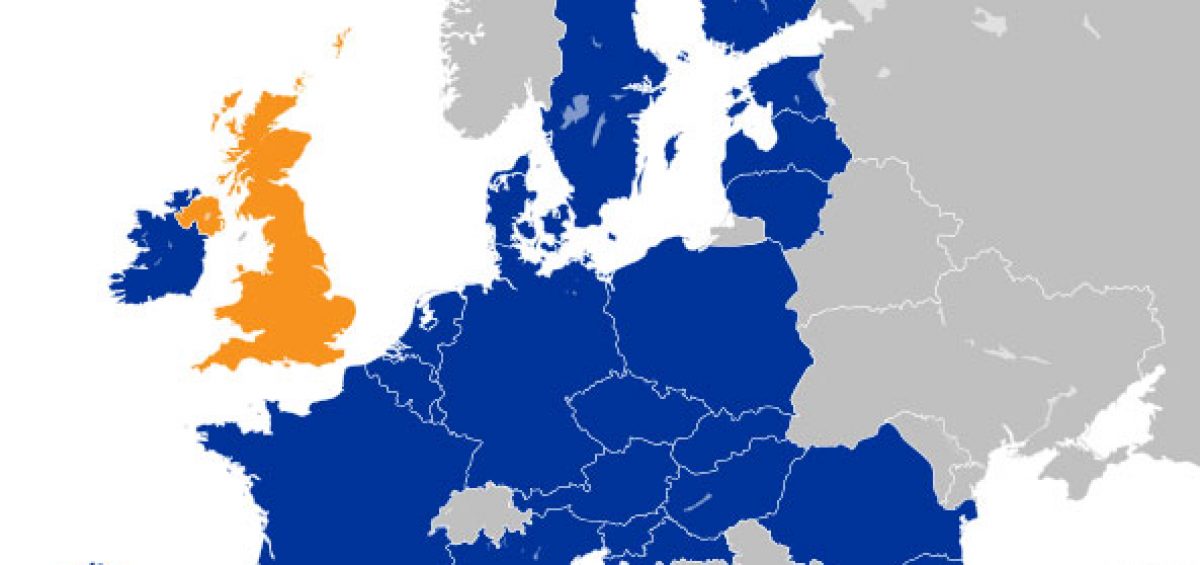
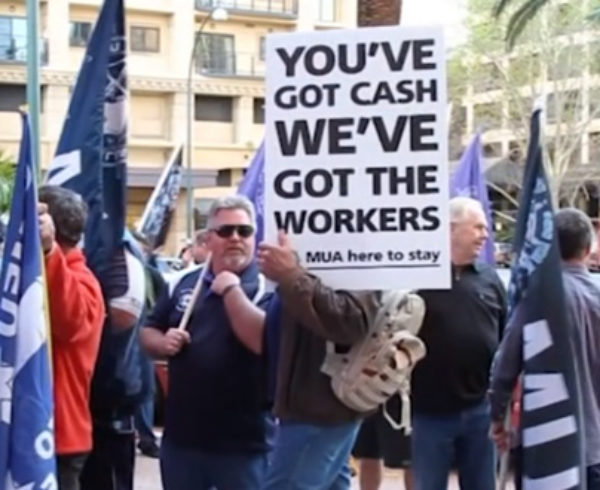
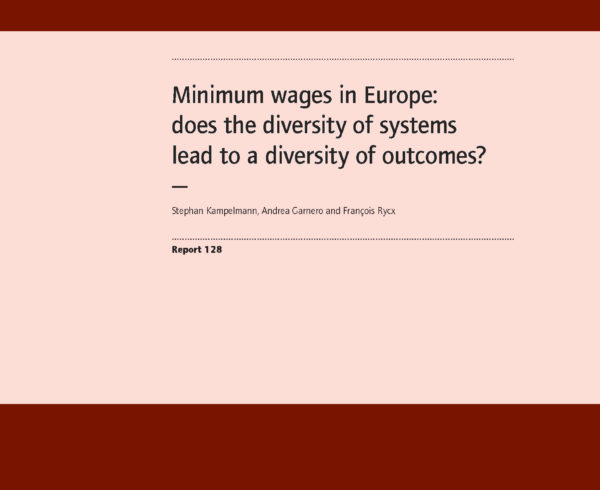
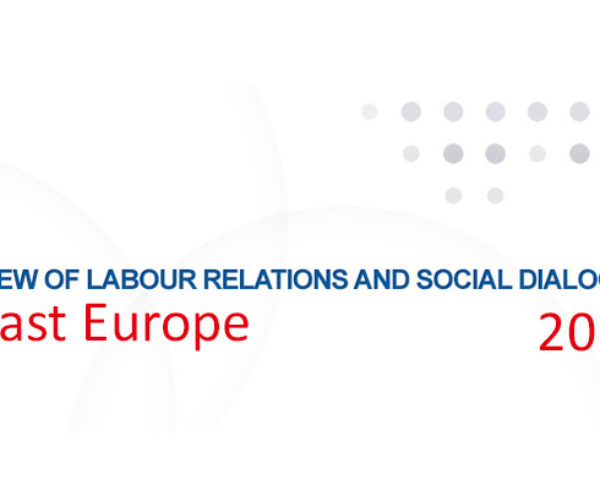
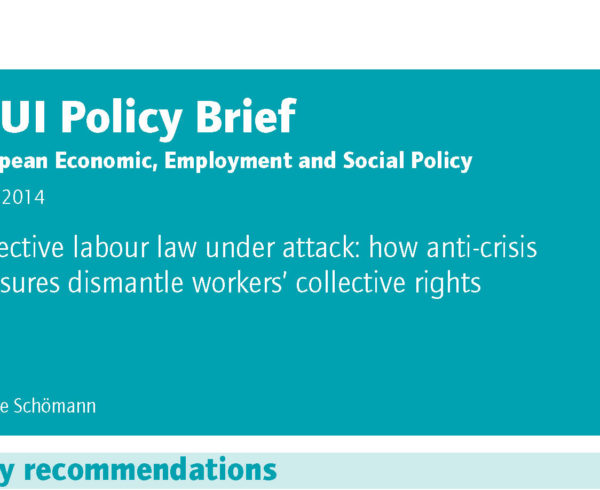
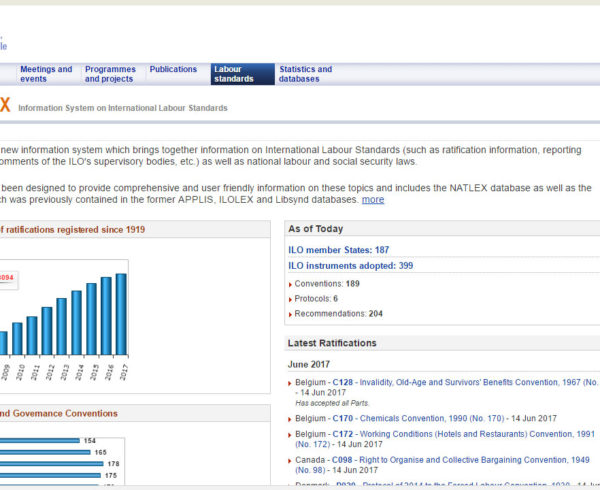

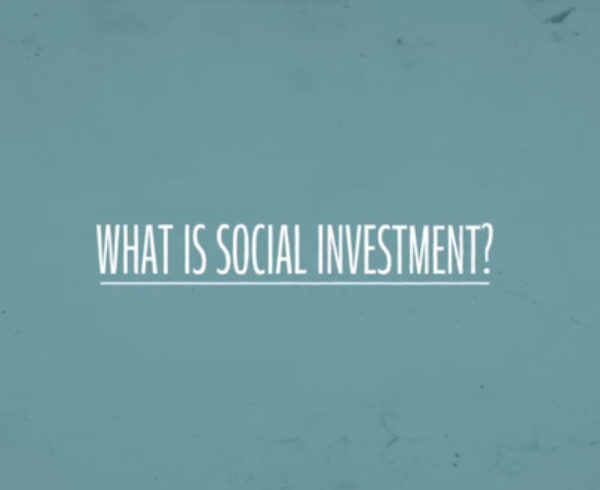
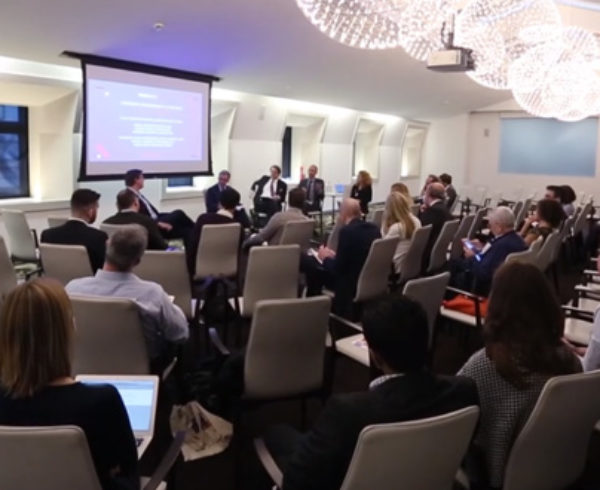




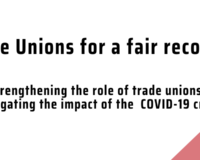





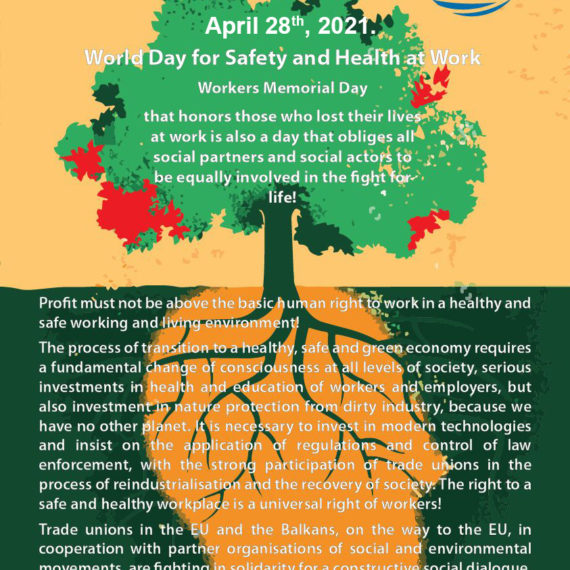
Leave a Comment